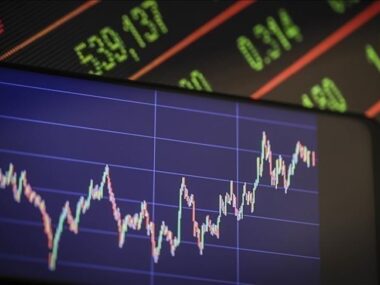Israel made less stuff in the last three months of 2023, and it fell for the first time in almost two years. This happened because the war with Hamas has had a big impact on the economy.
Israel’s total economic output, known as Gross Domestic Product (GDP), fell by 19. 4% compared to the previous quarter. In the previous quarter, the GDP had grown by 1. 8% This information was reported by Israel’s Central Bureau of Statistics on Monday.
The decrease was worse than expected because people spent 26. 9% less on things after feeling less sure about the economy and cutting back on their spending.
Businesses spent a lot less money on buildings and equipment, which went down by 67. 8% This was because of a decrease in residential building due to military call-ups and fewer Palestinian workers, according to Liam Peach, who works at Capital Economics. Exports went down by 18. 3%
“Peach said on Monday that although there might be some economic improvement in the first part of the year, the overall growth for 2024 is expected to be one of the lowest on record. “
Israel’s economy increased by 2% last year, according to the statistics office.
The Israeli shekel went down a little bit after the information came out, and is now trading at about 3. 62 to the US dollar. However, the money has been doing much better since it dropped right after the attacks in October. This is partly because the central bank has been giving it some help.
Despite the negative GDP reading, Israel’s stock market remained resilient. The Tel Aviv 125 Index, representing the 125 most valuable companies on the Tel Aviv Stock Exchange and considered a gauge of Israel’s economy, increased by 0.6% in mid-afternoon trading.
Israel’s recent economic downturn adds to a series of negative developments amid its conflict with Hamas in Gaza. The ongoing war is anticipated to incur costs of approximately 255 billion shekels ($70.3 billion) by the end of 2025, equivalent to about 13% of GDP, according to the Bank of Israel. In response to the economic impact, the central bank revised down its GDP growth forecast for the year to 2%, from an initial estimate of 3% made before the conflict started. Additionally, Moody’s recently downgraded Israel’s credit rating for the first time, citing increased political risk and a deterioration in public finances resulting from the war.
The tech sector has demonstrated resilience.
Before the outbreak of the war, Israel’s economy was in a relatively strong position, with a growth rate of 6.5% in 2022. The government had managed to reduce the debt-to-GDP ratio from 71% during the pandemic to 61%, significantly lower than that of countries like the United States and the United Kingdom. However, the conflict is now testing the economy’s resilience and putting pressure on government finances. Inflation slowed to 2.6% year-over-year in January, down from 3% in December, possibly indicating weakened economic activity.
Moody’s predicts that Israel’s public debt burden will be significantly higher than anticipated before the conflict, with defense spending expected to nearly double by the end of the year compared to 2022 levels. Besides direct war-related expenditures, the government is also providing housing subsidies for Israelis evacuated from areas near Gaza and Lebanon, as well as financial aid to affected workers and businesses.
The workforce contracted by about 7% when the war began, with over 300,000 military reservists called up, but Moody’s suggests that as reservists are released and schools reopen, the labor force is gradually returning to pre-conflict levels. This could provide a much-needed boost to Israel’s crucial tech sector, where about 15% of the workforce was mobilized for the war, according to Startup Nation Central.
The tech industry is a significant contributor to Israel’s economy, accounting for 18% of GDP, half of the country’s exports, and 30% of tax revenue. Despite fundraising challenges exacerbated by the conflict, demand for tech services remains strong, particularly from international clients. Major global tech companies with a presence in Israel continue their operations, signaling confidence in the country’s tech ecosystem.
Intel’s commitment to building a chipmaking factory in southern Israel, with a $25 billion investment, demonstrates a vote of confidence in the country’s tech future. Additionally, there are indications that fundraising activity may pick up soon, with reports of Korean investors planning to visit Israel despite logistical difficulties.
Overall, despite the challenges posed by the conflict, Israel’s tech sector is displaying resilience and continues to play a vital role in the country’s economy and global tech landscape.











